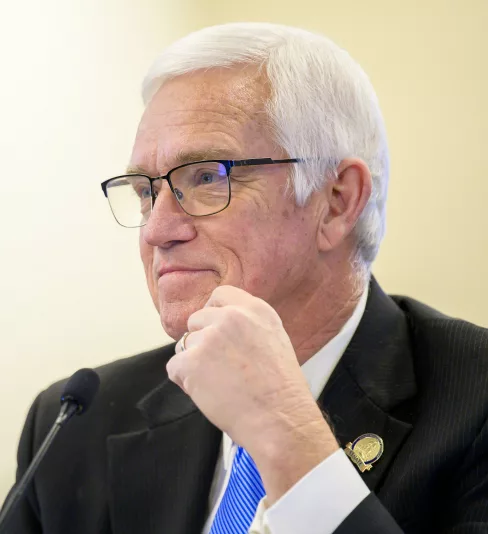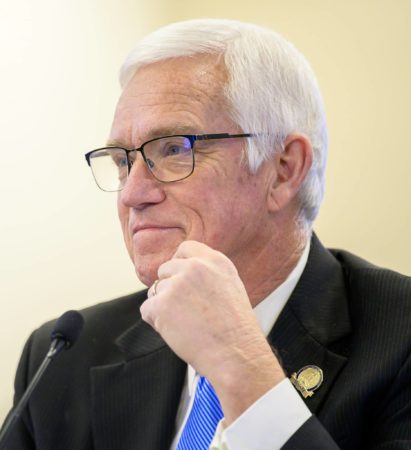
After a long weekend dedicated to observing Presidents’ Day, the Kentucky General Assembly returned to Frankfort on Tuesday, energized and ready to tackle the second half of the 2024 Regular Session with renewed enthusiasm and a few extra cups of coffee.
The deadline for bill filings is approaching, so all proposals for consideration in Frankfort will be known by the close of next week.
Bills passed by the Senate then move to the House for further consideration. If approved, they are delivered to the governor’s desk to be signed, vetoed, or left to become law without a signature.
Bills passed last week include:
SB 45, if enacted, would establish the Kentucky Ashanti Alert System to promptly alert the public when a “missing adult” is believed to be in immediate danger of abduction or kidnapping. Developed by the Kentucky State Police (KSP), it would utilize existing resources like electronic highway signs and the Amber Alert System. The system would encourage law enforcement cooperation, operate within existing budgets, and activate based on KSP’s assessment for public safety and secure recovery.
SB 48 would increase the time in which two separate offenses of theft by unlawful taking must occur for the offenses to be combined and the value of the property aggregated to determine the appropriate charge.
SB 65 would nullify administrative regulations found deficient by the Administrative Regulations Review Committee in 2023. It would prevent any administrative body from creating similar regulations until 2025.
SB 89 would mandate the Department for Medicaid Services and any managed care organization contracted for Medicaid services to offer coverage provided by licensed certified professional midwives. The aim would be to ensure that certified professional midwifery services are included in the scope of Medicaid coverage and allow for the pursuit of federal approval when required. The Cabinet for Health and Family Services or the Department for Medicaid Services must seek federal approval if they determine it necessary to implement this coverage.
SB 91 would streamline Kentucky driver’s licensing services by mandating the establishment of at least one regional office in each senatorial district by July 1, 2025. The bill would allow county clerks to choose to provide operator’s licenses or personal ID cards. It would also permit third-party entities to issue licenses, with associated costs and a potential convenience fee. Additionally, the bill would initiate a KSP pilot project for skills testing, reducing travel for high school students in five counties without a regional office. The pilot program would operate from September 1, 2024, to June 30, 2026.
SB 126 would propose amending the Constitution of Kentucky to limit a governor’s ability to issue pardons or sentence commutations before an election. The aim would be to enhance accountability and prevent potential misuse of executive power during sensitive political periods. If passed by the House with the approved three-fifths majority, it would move to a future general election ballot.
SB 140, addressing COVID-19-related unemployment insurance benefit overpayments (Jan. 27, 2020 – Dec. 31, 2020), would require the Secretary of Education and Labor Cabinet to send new notices by July 1, 2024, giving recipients an additional chance to request a waiver. Recipients would have one year from the notice to request a waiver, ensuring a hearing. The bill would allow reimbursement if recipients prove entitlement to the waiver based on specified statute standards.
SB 191 would make minor adjustments to Kentucky’s public postsecondary education system’s performance-based funding model. The bill would redefine “Nontraditional age students” as individuals aged 25 to 64. The aim would be to narrow achievement gaps by enhancing credential and degree attainment in this demographic. Proposed changes include revising funding percentages for public universities, introducing a weighted premium for credentials aligned with the state’s economic needs in the Kentucky Community and Technical College System (KCTCS) funding formula, and incorporating nontraditional-age students into outcomes credit. The Council on Postsecondary Education would be directed to implement these changes by April 1, 2024, with an emergency declaration for immediate enactment upon filing with the Kentucky Secretary of State’s Office.
It is a privilege to represent you in Frankfort. Please feel free to share your thoughts and stay connected throughout the session by reaching out to my office at (502)-564-8100 or via email at Stephen.Meredith@lrc.ky.gov. Additionally, you can stay informed and follow legislative activities through live broadcasts on www.KET.org/legislature and by visiting www.Legislature.ky.gov.
Sen. Steve Meredith, R-Leitchfield









